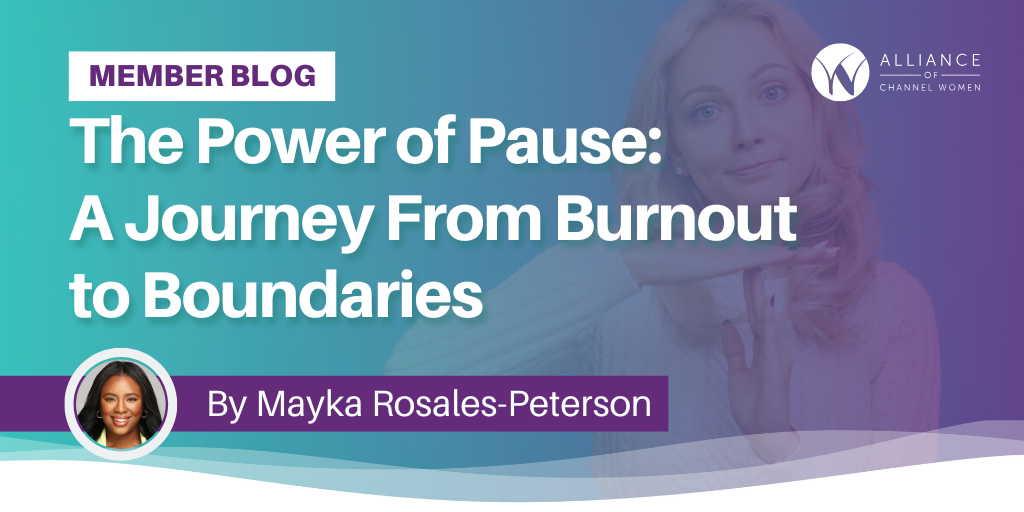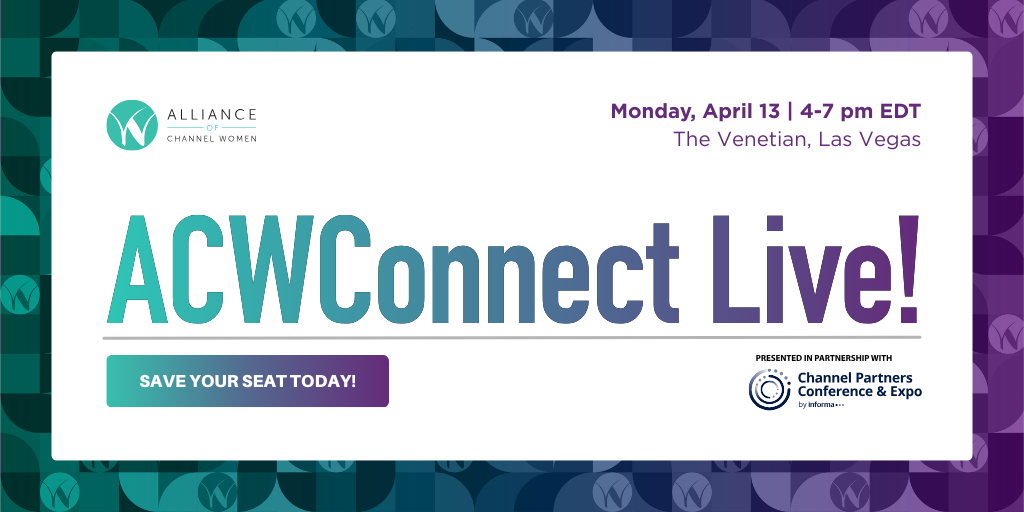By Mayka Rosales-Peterson, Vice President, Marketing at LAVA Technology Services
How a long-overdue vacation taught me that my worth isn’t measured by my availability
Three years. That’s how long I went without taking a real vacation. Three years of being “always on,” always available, always proving my value through my presence rather than my performance. I had convinced myself that being indispensable meant being inescapable — that the moment I stepped away, I would somehow become less valuable to my team, my company, my career.
Then I finally took that long-overdue break.
It wasn’t a grand revelation that led me there, but rather a quiet desperation. I was exhausted, getting sick constantly and despite my round-the-clock availability, I found myself in a position where I still wasn’t happy. The very thing I thought would secure my value — being perpetually present — had become the thing that was slowly eroding it.
The Myth of Indispensability
Somewhere along the way, many of us have bought into a dangerous myth: that our professional worth is directly tied to our accessibility. We wear our packed calendars like badges of honor and treat vacation days like luxury items we can’t afford. We respond to emails at midnight and take calls during family dinners, all in service of proving we’re committed, valuable, essential.
But here’s what I learned on those beautiful Jamaican beaches, with my phone tucked away and my out-of-office message finally activated: The world didn’t stop turning. My team didn’t fall apart. The projects continued.
In fact, something remarkable happened. My absence created space for others to step up, make decisions and take ownership. The very thing I feared — not being needed — revealed itself to be exactly what my team needed to grow.
The Cost of Always Being “On”
Before taking time off, I was paying a price I didn’t even realize was being deducted from my account:
- Physical health: Constant stress was wreaking havoc on my immune system. I was sick more often than I was well.
- Mental clarity: Being “always on” meant never having the mental space to think strategically or creatively.
- Relationships: My availability to everyone else meant unavailability to the people who mattered most.
- Professional growth: Ironically, my fear of becoming less valuable was keeping me stuck in patterns that prevented real advancement.
The Revolutionary Act of Saying No
That time away didn’t just give me rest — it gave me perspective. I returned with a newfound understanding of something revolutionary: saying no is not selfish; it’s strategic.
Every yes to something unimportant is a no to something that matters. Every time we sacrifice our boundaries to prove our dedication, we’re actually undermining our effectiveness. We’re teaching others that our time has no limits, which inevitably teaches them that our time has no value.
Lessons from the Power of Pause
Here’s what stepping away taught me about stepping up:
1. Your Worth Isn’t Your Availability
Your value as a professional isn’t determined by how quickly you respond to every email or how many hours you log. It’s determined by the quality of your work, the strength of your relationships and the impact you make when you are present.
2. Boundaries Create Respect
When you establish clear boundaries around your time and availability, you’re not just protecting yourself — you’re teaching others how to value and respect your contribution. People take you seriously when you take yourself seriously.
3. Rest Is Productive
Time away isn’t time lost; it’s time invested. Rest restores creativity, improves decision-making and prevents the kind of burnout that can derail careers and damage health.
4. Teams Are Stronger Than You Think
Your team is more capable than your constant hovering suggests. Sometimes the best thing you can do as a leader is trust your people enough to step back and let them shine.
Practical Steps to Embrace the Pause
If you’re reading this and seeing yourself in my pre-breakthrough story, here are some concrete ways to start building the power of pause into your life:
Start Small: Begin with micro-pauses. Take actual lunch breaks. Don’t check email after 7 p.m. Create small pockets of unavailability.
Communicate Clearly: Set expectations about when you’re available and when you’re not. Your out-of-office message should be a promise you keep, not a suggestion you ignore.
Plan Real Time Off: Book that vacation. Schedule those personal days. Treat rest as a non-negotiable appointment with your future self.
Practice Saying No: Start with small requests and work your way up. “I can’t take that on right now, but let me suggest…” becomes easier with practice.
Measure What Matters: Focus on outcomes, not hours. Evaluate your contribution by results, not by how busy you appear.
The Ripple Effect
The beautiful thing about learning to pause is that it creates permission for others to do the same. When you model healthy boundaries, you give your colleagues — especially other women — the courage to prioritize their own well-being. You become part of the solution to a culture that mistakes exhaustion for excellence.
My time away was more than a vacation; it was a reset. It taught me that taking care of myself isn’t a luxury — it’s a responsibility. Not just to myself, but to my team, my family and my career.
The power of pause isn’t about doing less; it’s about being more intentional with what you do. It’s about understanding that your value doesn’t decrease when you’re not visible, and your impact doesn’t diminish when you’re not immediately available.
So, to every woman reading this who feels like she has to be “always on” to be valued: You don’t. Your worth is not measured by your exhaustion. Your contribution is not calculated by your availability.
Sometimes the most powerful thing you can do is pause, breathe and remember that you are valuable not because of what you’re willing to sacrifice, but because of who you are and what you bring when you’re at your best.
Take the pause. Take the vacation. Take back your time.
You’re worth it.


